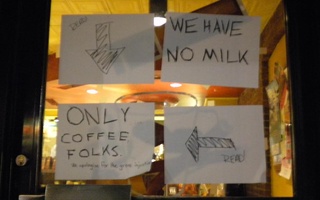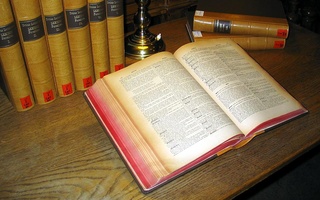
Above, Deans of the Faculty of Arts and Sciences (left) and the Deans of Harvard College whom they selected (right)
Part II of a three-part series on the search for a new Dean of the College. Part I ran on Oct. 16 and Part III ran on Oct. 18.
Last week, Dean of the Faculty of Arts and Sciences Michael D. Smith led a lively discussion in Lowell House about Harvard’s ongoing search for a new leader of its flagship school.
Flanked by six members of the advisory committee he convened in September to assist him with the process of picking a new College Dean, Smith took questions from an audience of about 25 students.
“This is extremely important from our perspective to get out and hear from students about what you’re thinking,” he told the students before beginning a discussion that lasted about 75 minutes and touched on topics ranging from final clubs to the experience of students living in the Quad.
In both the current search and his 2007-2008 search for his first College Dean pick, Evelynn M. Hammonds, Smith has publicly sought to put student engagement and the work of advisory committees at the center of the search process.
While historically there has been no one-size-fits-all process to selecting the College Dean, Smith’s consultative approach represents a significant tactical shift from that of his predecessors, some of whom were criticized for not attempting a broad consultation with the Harvard community when making their appointments.
Yet in other aspects of the College Dean search, Smith has followed historical precedent. In the 2007-2008 search, Smith continued a legacy that has seen FAS deans use their near-singular authority to majorly influence the structure of the College administration during the turnover of its leader. Today, it remains to be seen if he will do so again.
THE FINAL SAY
When then-FAS Dean A. Michael Spence set out to replace Dean of the College John B. Fox Jr. ’59 in 1985, he appointed an advisory committee to help him with the work. He delegated to the committee the early groundwork of the search, including the preliminary interviewing of applicants and the reading of applications.
But Spence took over later in the process, interviewing the finalists on his own, according to a 1985 Crimson article, and eventually selected L. Fred Jewett ’57.
“My recollection is that it was a more informal consultative process, thorough, but not a full search committee,” Spence wrote in an email to The Crimson last week.
Spence was not alone in making the appointment a primarily executive decision.
Former FAS Dean William C. Kirby also favored a more internal approach to College Dean searches when he made his selection in 2003. Although a committee was established to evaluate new responsibilities for the Dean of the College, Kirby appointed the new College Dean, then-Dean of Undergraduate Education Benedict H. Gross ’71, before the committee ever met.
Gross, who now heads the Department of Mathematics, remembered a brief search process, with little consultation of the community at large—a contrast to what he has observed in Smith’s searches.
Read more in News
Professors Discuss Role of 'Nudging' in Influencing DecisionsRecommended Articles
-
Programs for Winter Activities Week Take ShapePlans for formal programming for this year’s inaugural Optional Winter Activities Week—which runs from Jan. 16 until the beginning of spring semester—have begun to take shape, with both student-initiated and University-sponsored events confirmed for the period.
-
Bok, Wife Discuss HappinessFormer Harvard President Derek C. Bok debated with his wife Sissela Bok how to find happiness at the Harvard Graduate School of Education last night.
-
 Got Milk? We Guess Not.
Got Milk? We Guess Not. -
Study Finds No Anti-Conservative Discrimination in Graduate SchoolConservatives are less likely to pursue a Ph.D. than liberals not because of discriminatory hiring practices, but because they perceive academia as a liberal bastion, according to two studies released by Harvard Sociology graduate student Ethan A. Fosse and University of British Columbia associate Sociology professor Neil Gross.
-
 The Nonrequired Required Reading List
The Nonrequired Required Reading List -
Education Start-up Wins GrantSchool Yourself, a start-up founded by Zachary D. Wissner-Gross and John Lee, won a $25,000 inaugural grant from the Hertz Foundation’s Newman Entrepreneurial Fund for a project reimaging the traditional textbook.













